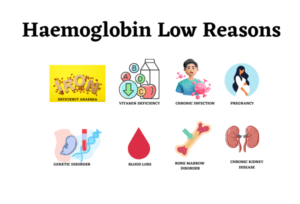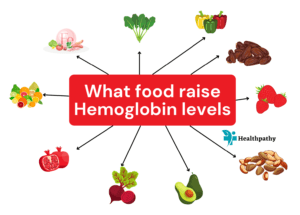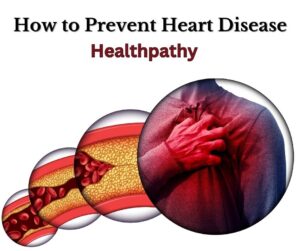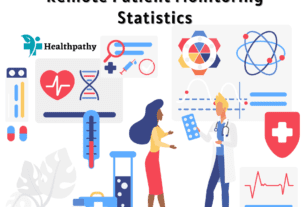Haemoglobin Low Reasons

Low hemoglobin levels, a condition known as anemia, can have various underlying causes. Hemoglobin is a protein in red blood cells that carries oxygen from the lungs to tissues throughout the body. When hemoglobin levels are below normal, it can lead to symptoms such as fatigue, weakness, dizziness, and shortness of breath. Understanding the reasons for low hemoglobin levels is crucial in determining the appropriate treatment and management. Here are some common low hemoglobin reasons:
Iron Deficiency:
Iron deficiency anemia is the most common cause of low hemoglobin levels. Iron is a key component of hemoglobin, and insufficient iron intake can lead to reduced hemoglobin production. This deficiency may result from inadequate dietary intake of iron-rich foods, poor iron absorption due to gastrointestinal disorders, blood loss from menstruation or gastrointestinal bleeding, or increased iron requirements during pregnancy.
Vitamin Deficiencies:
Certain vitamins, such as vitamin B12, folate (vitamin B9), and vitamin C, are essential for hemoglobin production. Deficiencies in these vitamins can disrupt red blood cell formation and lead to anemia. Vitamin B12 is primarily found in animal products, so vegetarians and vegans are at higher risk of deficiency. Folate deficiency can occur due to poor diet, malabsorption issues, or increased demand during pregnancy.
Chronic Diseases and Infections:
Chronic diseases, such as chronic kidney disease, inflammatory disorders (e.g., rheumatoid arthritis), and certain infections (e.g., HIV, tuberculosis), can interfere with the body’s ability to produce red blood cells, leading to anemia.
Hemolysis:
Hemolysis is the destruction of red blood cells at a rate higher than their production. This condition can result from various factors, including autoimmune disorders, certain medications, infections, and inherited conditions like sickle cell anemia and thalassemia.
Bone Marrow Disorders: Haemoglobin Low Reasons
The bone marrow is responsible for producing red blood cells, among other blood components. Disorders affecting the bone marrow, such as aplastic anemia, myelodysplastic syndromes, and leukemia, can lead to reduced hemoglobin levels.
Chronic Blood Loss:
Any condition or situation that causes chronic blood loss can result in anemia. Common sources of chronic blood loss include gastrointestinal ulcers, colon polyps, colorectal cancer, heavy menstrual periods in women, and certain medications that increase the risk of bleeding.
Pregnancy:
During pregnancy, the body’s blood volume expands to support the growing fetus. This can lead to a relative decrease in hemoglobin concentration, causing physiological anemia of pregnancy. Additionally, some pregnant women may experience iron deficiency anemia if their iron intake is inadequate.
Dietary Factors:
A diet lacking essential nutrients required for hemoglobin production, such as iron, vitamin B12, and folate, can contribute to anemia.
Genetic Disorders:
Some individuals may have inherited conditions affecting hemoglobin structure or production, such as sickle cell anemia, thalassemia, or hemoglobinopathies.
Hemorrhage:
Acute and significant blood loss due to trauma, surgery, or severe injury can lead to a rapid drop in hemoglobin levels, resulting in acute anemia.
Chronic Kidney Disease:
Kidneys play a crucial role in producing erythropoietin, a hormone that stimulates red blood cell production. In chronic kidney disease, reduced erythropoietin production can lead to anemia.
Conclusion:
To determine the specific cause of low hemoglobin levels, a healthcare professional will conduct a thorough medical history, and physical examination, and may order blood tests to assess the complete blood count (CBC), iron levels, vitamin levels, and other relevant markers. Treatment for low hemoglobin levels depends on the underlying cause and may involve dietary changes, iron supplementation, vitamin supplements, or addressing any other underlying medical conditions. Early detection and appropriate management of anemia are essential to prevent complications and improve overall health and well-being.
Also Read:



Follow us: Haemoglobin Low Reasons





